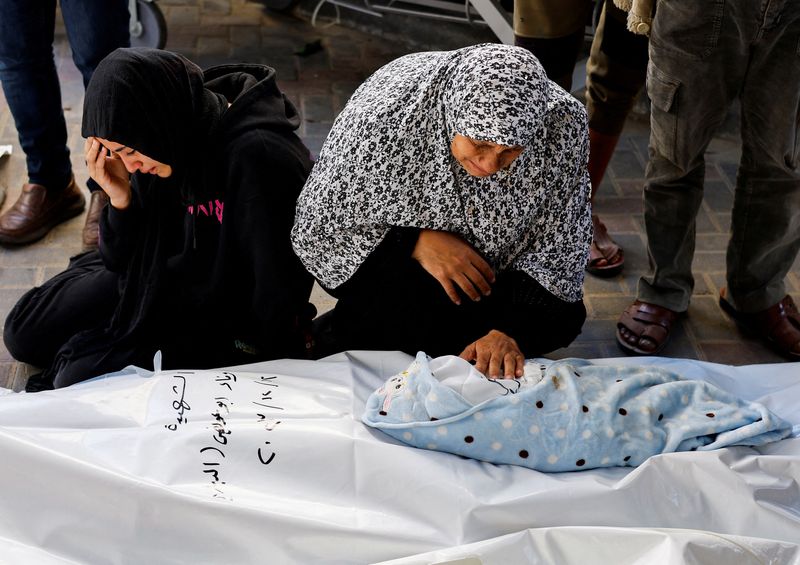RAFAH, Gaza Strip (Reuters) - Baby Idres was wrapped in a white shroud and a light blue blanket with dots, his grandmother holding his tiny body close to her chest and weeping uncontrollably as she knelt next to a row of corpses lined up on the floor of a Gaza hospital.
Born a month ago as war raged around him, Idres al-Dbari had been living in a tent in Rafah, southern Gaza, with his displaced family when he and his mother Wafaa were killed by an Israeli air strike overnight on Tuesday.
After the strike, the dead bodies of over a dozen adults and children had been placed on blankets spread on the ground at Abu Yossef Al-Najar hospital in Rafah, all wrapped in white shrouds with names and dates of death written on them in black.
Among the bereaved relatives with bowed heads surrounding the dead was Um Zeyad al-Dbari, grandmother of Idres, who gently unwrapped the top of the shroud so that she could see his face and stroke his soft black hair as she cradled him.
"The boy was born early in the war, early, he was born a little over a month ago," she said, her voice high-pitched from weeping and her despair showing on her face.
"My love," she said, kissing Idres's forehead before repeating "my love" in a near-whisper.
Idres's body was placed on top of that of his mother, whose shroud was inscribed with the words "the martyr Wafaa al-Dbari" and the date of her death, Dec. 12, 2023. Um Zeyad remained kneeling next to them, her hand resting on Idres.

The war was triggered by Hamas militants who rampaged through southern Israel on Oct. 7, killing 1,200 people including babies and children and kidnapping 240 people of all ages to hold as hostages in Gaza, according to Israel.
Vowing to destroy Hamas, Israel has responded with a military onslaught and total siege of the densely populated strip that have killed more than 18,000 people, most of them women and children, according to the Gaza health ministry.